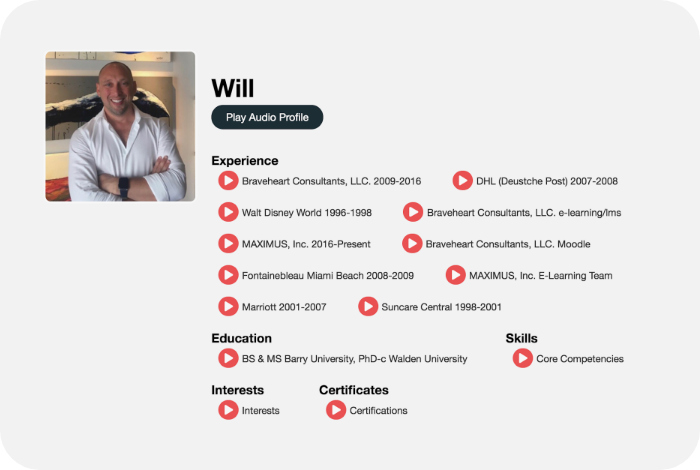In the world of interviews, whether it’s for market research, employment, or clinical assessments, the method of gathering information is as crucial as the data itself. Traditionally, interviews have relied on face-to-face or telephone conversations, where the interviewer jots down notes or records responses for later analysis. But the way we approach interviews is rapidly changing, thanks to new technologies like Sound Branch.
Traditional vs. Modern Interview Techniques:
The Old Way
Historically, interviewers across various roles—from telephone interviewers to admissions interviewers—relied heavily on real-time interaction. This typically involved a linear process: the interviewer asks a question, listens to the response, and either writes down notes or captures the conversation on tape. This method, while effective in its time, presents several challenges. The data collected is often limited to what the interviewer can transcribe, and nuances such as tone, sentiment, and emotional cues can be lost in the process.
Furthermore, these interviews are time-consuming, often requiring lengthy sessions to capture sufficient data. The manual nature of these interviews also limits the number of people an interviewer can reach within a given timeframe, creating a bottleneck in the data-gathering process.
The New Way with Sound Branch
Enter Sound Branch, a platform designed to transform the way interviews are conducted. This technology allows for asynchronous audio communication, where responses can be recorded, analyzed, and revisited without the constraints of a live, real-time interaction. For an interviewer, this means no more hurried note-taking or missed details.
For example, a telephone interviewer using Sound Branch can now conduct multiple interviews simultaneously. Participants can leave their responses at their convenience, which are then automatically transcribed and analyzed by the platform. This not only speeds up the process but also allows for deeper insights through sentiment analysis, where the system detects emotional tones and subtleties that might be overlooked in a traditional setting.
Similarly, a field interviewer who once traveled extensively to meet participants can now gather data remotely, without losing the personal touch of voice interaction. Sound Branch enables these interviewers to reach more respondents in a fraction of the time, making the process more efficient and cost-effective.
Why Sound Branch is More Effective and Efficient:
1. Scalability and Speed:
Sound Branch allows interviewers to reach a broader audience more quickly. A market research interviewer can engage with hundreds of participants asynchronously, gather their responses, and analyze the data in real-time. This increases the volume of data collected and allows for faster decision-making processes.
2. Enhanced Data Capture:
Unlike traditional methods where only the spoken words are captured, Sound Branch enables the collection of rich data, including sentiment analysis. For a clinical interviewer, this is particularly valuable as it provides deeper insights into a patient’s emotional state, which can be critical for diagnosis and treatment planning.
3. Improved Flexibility:
The asynchronous nature of Sound Branch offers unparalleled flexibility. An executive interviewer or an employment interviewer no longer needs to coordinate schedules with busy professionals. Instead, they can collect responses at the convenience of the interviewee, leading to higher participation rates and more comprehensive data.
4. Increased Reach:
Bilingual interviewers and intake interviewers can easily cater to diverse populations. Sound Branch’s multi-language support and automatic transcription services ensure that language barriers are minimized, and data collection is more inclusive and representative.
5. Comprehensive Analysis:
With Sound Branch, the data doesn’t just stop at transcription. Research interviewers can utilize built-in tools to analyze patterns, track changes over time, and even predict trends based on the collective data gathered. This turns what was once a manual and labor-intensive process into a streamlined and insightful operation.
6. Higher Data Quality:
Sound Branch minimizes the risk of human error in data collection. For an interview coordinator, this means less time spent cross-checking data and more time focusing on the strategic elements of the interview process. The platform’s ability to record and revisit responses ensures that no detail is overlooked, leading to higher-quality data and more accurate outcomes.
The shift from traditional interview methods to utilizing Sound Branch represents a significant leap in how we gather and analyze information. It’s not just about making the process more efficient; it’s about unlocking new levels of insight that were previously unattainable. As interviewers—from senior research interviewers to interview specialists—adopt this technology, they will find themselves equipped with tools that allow them to not only do more but to do better. In this new era of interviewing, the potential for more nuanced, accurate, and actionable data is limitless, paving the way for more informed decisions and better outcomes in every field.


